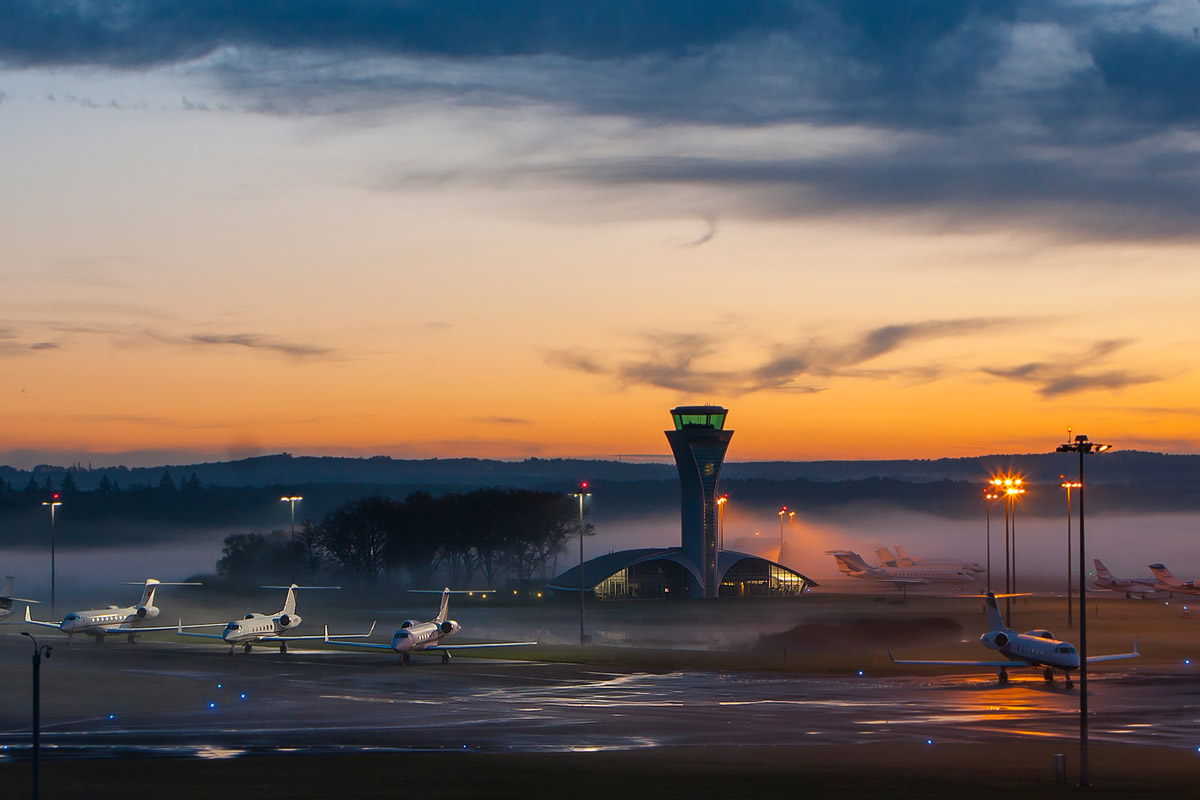Following extensive engagement with the local community, Farnborough Airport has submitted plans to Rushmoor Borough Council for proposed changes to the way the Airport operates and for enhancements to its community funding programme. The application directly reflects valuable feedback that the Airport received from residents and stakeholders.

The Airport has consulted on plans to amend its annual flight limit from 50,000 to 70,000 per year alongside other operational changes to meet the long-term market demand for business aviation connectivity from Farnborough.
As one of the largest employment sites in the local area, these changes are essential to safeguard the economic prosperity of the region. Farnborough Airport contributes £200m to the local economy each year, supporting many thousands of direct and indirect jobs in the process.
With the success of the local area and the Airport going hand-in-hand, the proposals will enable Farnborough Airport to continue to be a catalyst for long-term economic prosperity; supporting 4,100 local jobs directly and indirectly, and generating £470m of Gross Value Added by 2040.
As part of its revised plans and in a notable UK first, Farnborough Airport is proposing significant changes to its existing Sound Insulation Grant Scheme. These amendments will offer the most generous eligibility criteria of any comparable airport noise insulation scheme in the country.
The application also includes a number of proposals to enhance and improve the Airport’s community funding programme, with plans to increase funding levels for environmental and community projects in the local area. These measures include the formation of a new Sustainability Fund which will focus on projects outside the Borough of Rushmoor and in neighbouring communities that may be affected due to their proximity to the Airport’s operations.
Community feedback received during the consultation was extremely important in shaping the final application, directly leading to positive revisions being made to the original proposals. These have also included not extending the operating hours on non-weekdays as originally intended and a number of positive measures focused on addressing aircraft noise and emissions.
Commenting on the submission, Farnborough Airport’s Chief Executive Simon Geere said: “We have gone to great lengths to understand the opinions and priorities of local residents and stakeholders regarding our proposed changes. We are thankful to the local community for engaging in the evolution of our proposals by providing valuable feedback. This collaborative approach has helped us shape improvements to the final application, which has now been submitted to Rushmoor Borough Council.
“We are committed to ongoing engagement with the community, and will continue to work with residents, community representatives and elected officials in and around Farnborough as our application is considered.”
The consultation - which took place from 4th September to 18th October 2023 - included six exhibitions in four local authority areas, during which more than 1,200 people discussed the proposals extensively with members of the team from Farnborough Airport. Wider community and stakeholder input also came in from feedback forms, emails and responses to a hard copy and online survey via the dedicated website.
Covering a range of themes, this feedback helped shape the final application:
- The operational change least supported was the proposal to adjust the Airport’s operating times on non-weekdays. In response, this has been removed from the application, instead retaining the current non-weekday operating hours of 08.00-20.00.
- The operational change with the most support was the proposal to increase the restricted aircraft weight category to accommodate new generation business aviation aircraft, which are often quieter but slightly heavier.
- A common theme was concern around the Airport’s future growth rate. In response and to ensure growth is phased over time, revised annual and non-weekday flight limits have been proposed. These would replace the Airport’s existing 50,000 annual total and 8,900 annual non-weekday flight limits and commit the Airport to a gradual growth trajectory towards the amended annual flight limits of 70,000 and 18,900 by 2040.
- The most commonly raised subject across email responses related to noise. As a result, the revised application includes new measures to mitigate and reduce the potential for increased aircraft noise, including proposing the most generous eligibility criteria of any airport in the UK in relation to grant funding for noise insulation.
- Around 50% of respondents supported increased contributions to the Airport’s community funding programme, with majority support for a new Sustainability Fund to help fund local sustainability projects. The proposals were updated to include additional funding as well as flexibility for an extended geographic reach of the Fund and the potential for a broader remit in terms of local community initiatives.
- The plans also allow for a continued and renewed focus on emissions reduction and air quality monitoring, with additional monitoring and reporting being proposed, including the measurement of Particulate Matters. A reaffirmation of the Airport’s ambition to be a leader in the adoption of Sustainable Aviation Fuel (SAF), including an aspiration to be the first UK airport to become 100% SAF as soon as is practicable, has also been included.
Farnborough has been the home of British aviation for nearly 120 years and is the nexus of a vibrant and growing aerospace cluster, with world-class aviation and ancillary businesses attracted to the region, bringing high-skilled and well-paid jobs to Hampshire, Surrey and beyond.

